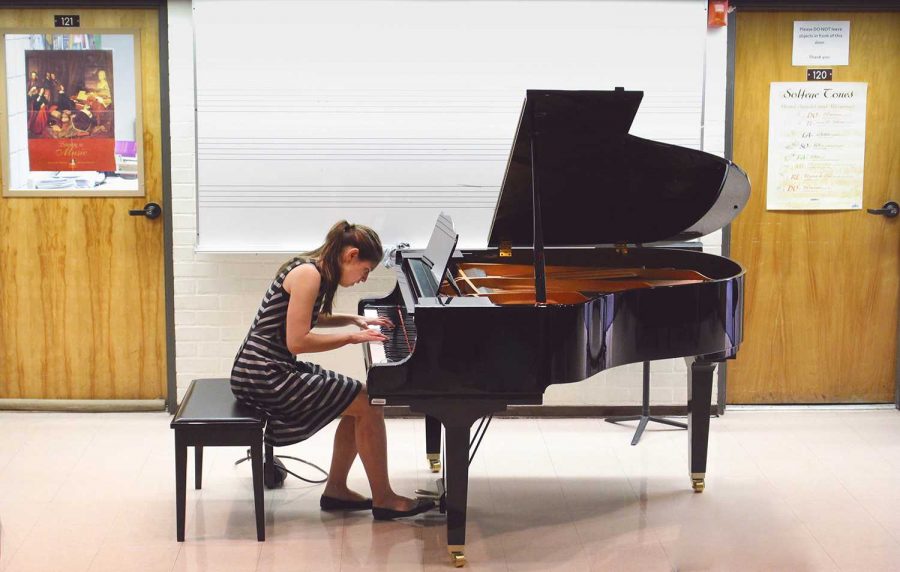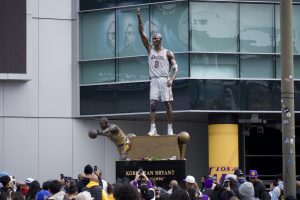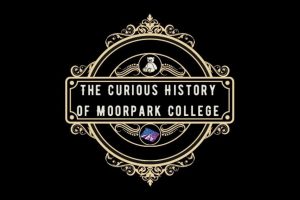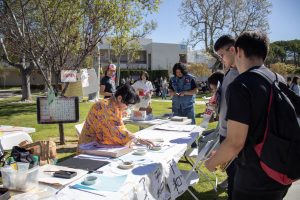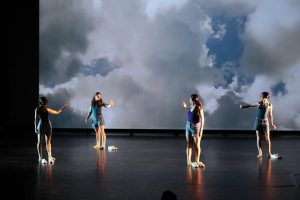Aspiring musicians inquire at the Applied Music Program
Bethany Halstead, 19, music major, performs Venetian Boat Song Op. 30 No. 6 composed by Felix Mendelssohn. Photo credit: Shahni Ben-Haim
September 15, 2015
The Applied Music program strives to produce students with amazing talent.
Almost 15-years-ago, Moorpark College were pioneers in being one of the first community colleges to adopt the program to benefit applied music majors.
A few years ago the state of California cleaned up their transfer protocol and made a recommendation for all community colleges offering music degrees to also offer applied music. Moorpark College had been offering the program well before the change in protocol, according to James Song, the music department chair.
“It was a pretty small program at the time, there was only just a limited amount of spaces that we could offer,” said Song. “the applied music program is an essential part of any music degree program in a college level.”
Professor Song offered some enlightenment with a further explanation on how the applied music program will not interfere with ADT or IGETC transfer requirements.
“Our applied music program is perfectly aligned with the state recommendations at this point,” said Song.
This esteemed program does have some requirements from the students before being accepted, for example, an audition is required.
The music program requires an audition from a performer that can play at a college level and at the standards the Applied Music Program has set for it’s students, according to the Moorpark College Course Catalog.
The word “standards” becomes a vague description. Song offered a further explanation on what the music department looks for when accepting students into the program.
“A student would be expected to understand the different genres, at least different styles,” said Song.
Students are also expected to have had prior experience in performing or private lessons. They also need to acquire technical knowledge of their instrument.
The lucky aspiring music students that are selected to participate can expect many benefits.
Students are provided with 17 and a half hours of one-on-one lessons with a professional music performer in their field.
“We provide weekly one-on-one lessons provided by the professional musicians in the area,” said Song.
Shirley Chikukwa, 21, music performance vocal major, says the repertoire classes are one of her favorite things about the program.
“It gives us a chance to perform and you can see what you need to change and adjust and it’s also nice to get feedback,” said Chikukwa.
Students in the program have many goals for the future and although students spend two years in the program as performers, not all of their aspirations include being performers.
“I want to build one of the best music centers in Africa and I want it to bring students from all over the continent,” said Chikukwa, about her future aspirations.
Edris Foroughi, 28, music major, said he wants to be a composer.
“It’s my passion, everyone says I am talented in music,” said Foroughi, as he walked into his first repertoire class.
Students who go through the applied music program go on to achieve great successes, said Song.
“Typically, most of our students go on to local universities like CSUN or Cal State Long Beach, UCLA, USC,” said Song. “Some of them move on to San Francisco Conservatory and some conservatories like Oberlin Conservatory, Peabody, and high-end conservatories in central and east coast America.”
Currently, the applied music program has 27 students in it, but coming in the spring semester the music department hopes to expand the program to reach at most 40 students. Auditions for the upcoming spring admissions will be held Jan. 8th.



